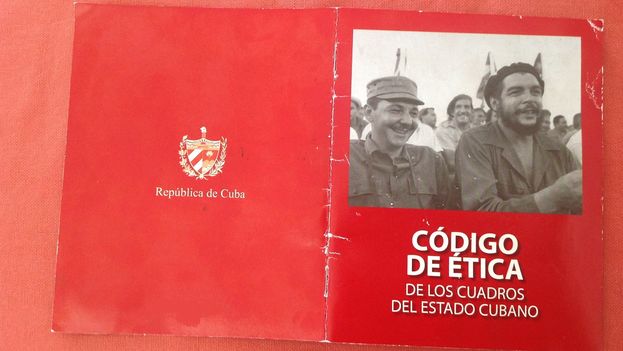
![]() 14ymedio, Reinaldo Escobar, Havana, 9 May 2016 – Marxist thinkers from the last century appeared to be convinced that the communist ethic could only work after the elimination of the different social classes or, and it’s the same thing, when the communist society triumphed in the economic plane. “How can stealing be ethically condemned when there is no property?” they asked with the same guileless eagerness medieval theologians brought to their debates about the carnality of the glorious bodies resuscitated after the final judgment.
14ymedio, Reinaldo Escobar, Havana, 9 May 2016 – Marxist thinkers from the last century appeared to be convinced that the communist ethic could only work after the elimination of the different social classes or, and it’s the same thing, when the communist society triumphed in the economic plane. “How can stealing be ethically condemned when there is no property?” they asked with the same guileless eagerness medieval theologians brought to their debates about the carnality of the glorious bodies resuscitated after the final judgment.
In practice, politicians who have had to get their hands dirty in an attempt to implement different Marxist experiments have come to understand the length of this “transition stage” called socialism. They have confronted the contradiction of not being able to lay their principles in the already rejected “bourgeois morality” and, on the other hand, they have seen the impossibility of applying communist morality in anticipation, impractical without the support of the material base assumed in the scientific fulfillment of their inexorable laws.
In consequence, each “historically determined” model found its provisional ethics, negating the previous one but incompatible with those of the future. It was that ethic that enabled Joseph Stalin’s forced collectivization, Mao’s Great Step Forward, and Fidel Castro to decree the Revolutionary Offensive. From this moral relativism arose the Code of Ethics for the cadres of the Cuban State.
The original version of this little known document was promulgated on 17 July 1996, signed by the then all-powerful Carlos Lage Davila. It was called Agreement 3050 and was displayed as a “proposal presented by the Cadres’ Central Committee, concerning the need to define and systemize a code of standards that would rule the lives and conduct of the Cadres of the Cuban State.”
Among the purposes and forms of application summarized in seven points, is the need to alert and prevent cadres “facing tendencies that could arise in the face of economic transformations and aggressive enemy action.” Compliance with the principles codified would be obligatory for the heads of the state’s central administrative organs, national entities, and presidents of the provincial and municipal People’s Power Administrative Councils, among others, who will have to determine “within their respective systems, the positions to which the Code of Ethics will be applied.”
Once these functionaries know and accept the content of the new rules, they will have to express their willingness to comply with them “publically, in an official act at the acceptance of the position.” Not content with that, “in cases of promotions and transfers, in the process of preparation for the new position,” the cadre is obliged to update his or her knowledge of the document, as well as again publicly ratify the commitment to fully comply.
Through a table of commandments broken down into 27 points, the Code demands “high moral values, deep revolutionary sensitivity, and a clear sense of duty” along with other virtues that cadres must have, such as sincerity, honesty, modesty, austerity, simplicity and discretion.
At the same time, it condemns lying, deceit, demagoguery, fraud, apathy, indolence, pessimism, hypercriticism and defeatism. Among other harmful attitudes indicated are the spirit of justification, inaction in the face of difficulties and mistakes, lack of initiative, the features of ostentation and consumer habits. It warns that the performance of cadres should be stripped of voluntarism, vanity, improvisation, professional injustice and mediocrity as well as sectarianism, and contempt for the dignity of others. Cadres must combat boasting, self-sufficiency, conceit, intolerance and insensitivity.
Paradoxically, the inability to be consistent with such requirements has promoted a defect not mentioned in the text: simulation – that is, faking it – the only alternative to which has been, for many, desertion, an action not contemplated among the violations.
In the 20 years of the Code of Ethics’s existence, probably not a single one of the sins of listed here has ceased to be committed, nor has there flourished even one of the untarnished virtues advertised therein. Not only that, but sins have been abundant and virtues few at all levels of the government and political leadership of the country, and at all levels of administration.
In the wasteland of moral values there has been unleashed a plague of brazen cynicism, of sordid impudence that nobody knows how to stop. And not even mentioned is the advent of the New Jerusalem the communist utopia would suggest. There will be a final judgment where we all will have to be forgiven for something.
